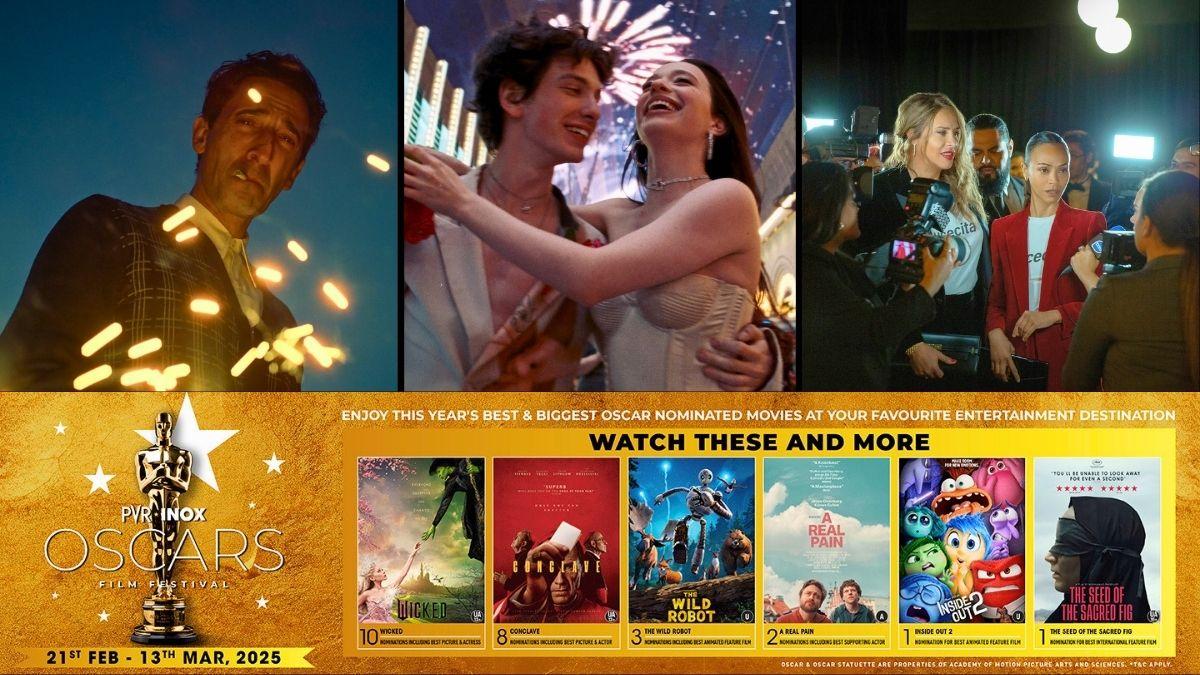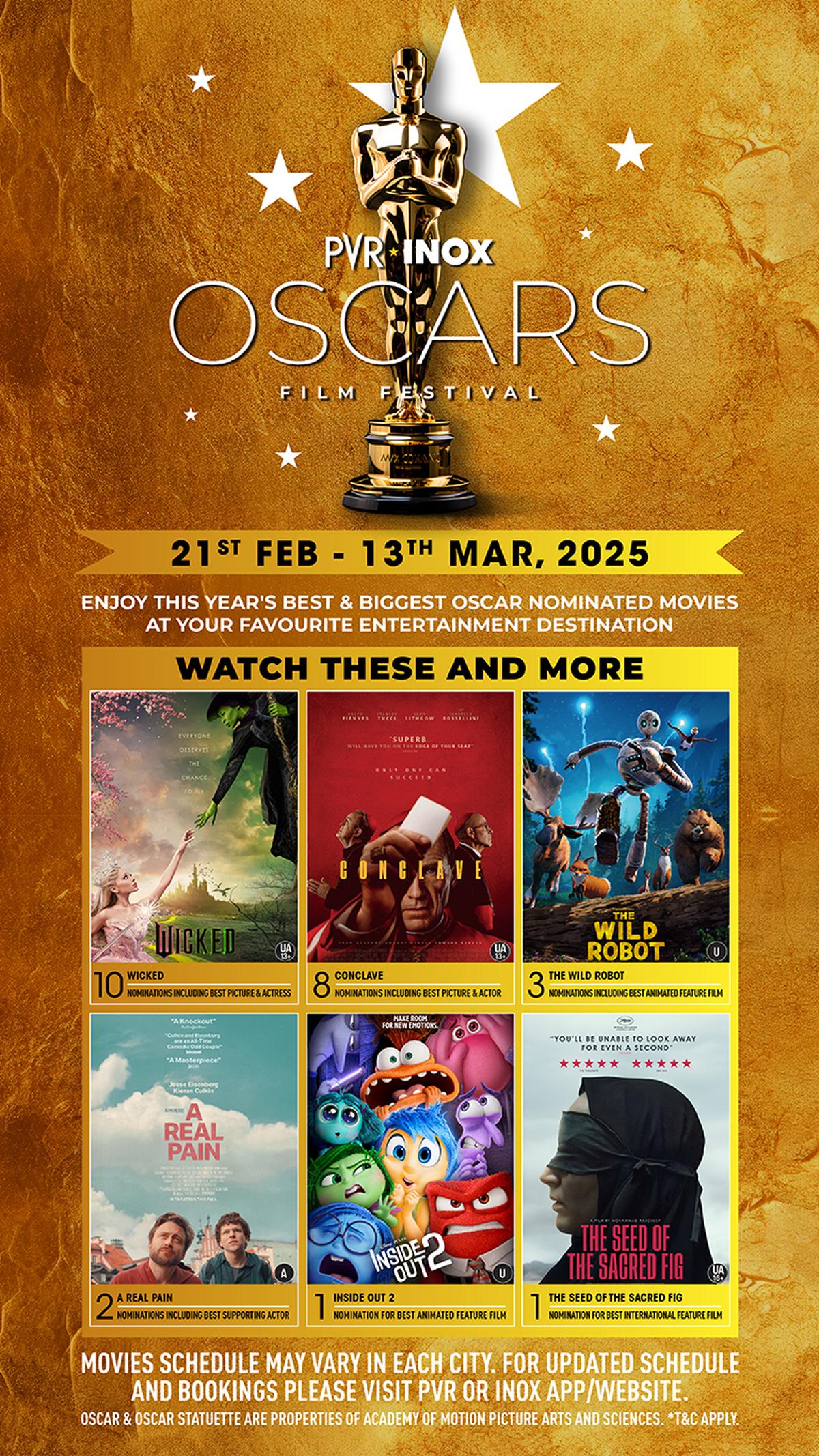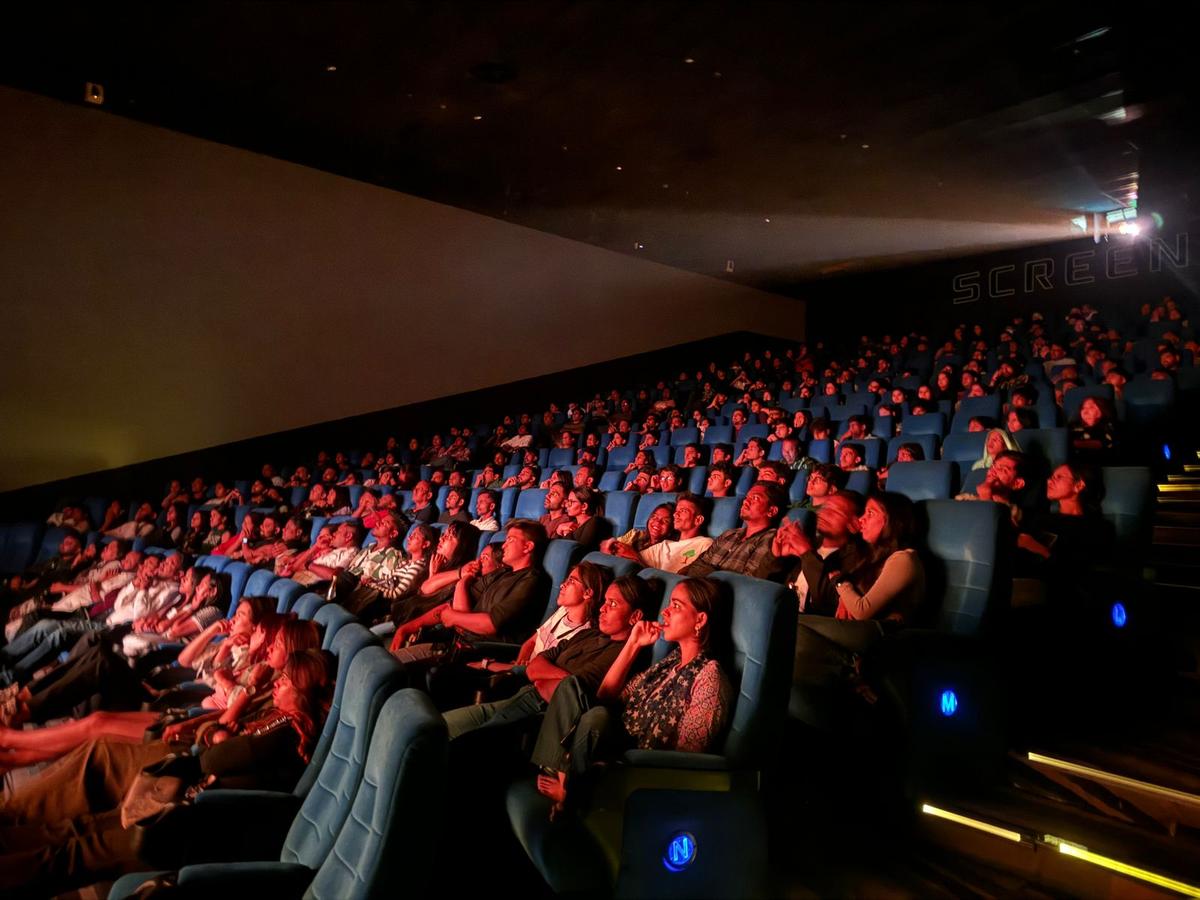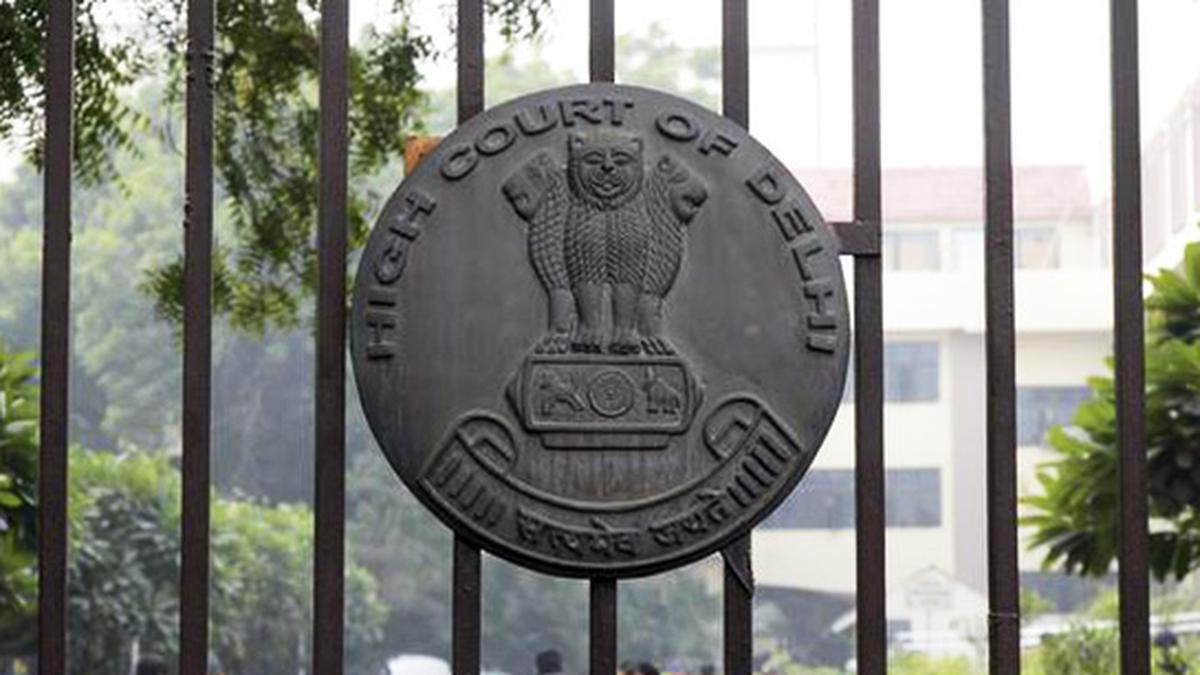Why Best Picture frontrunner ‘Anora’ is missing from Indian theatres

By now, it’s a February ritual for Indian cinephiles to groan at Oscar snubs and doom-scroll r/oscarrace. The days stretch longer, the air thickens with awards-season gossip, and a carefully curated lineup of Academy-anointed films trickles into Indian multiplexes, courtesy of PVR INOX. The annual Oscar Film Festival — running this year from February 21 to March 13 — has become as much a part of India’s movie calendar as the monsoon box-office slump and the Diwali blockbuster rush. Film lovers wait all year to greet it with part delight, part exasperation; for where else can one catch a Palme d’Or-winner, a Broadway-to-Hollywood spectacle, and a slow-burning foreign arthouse epic in the same theater, just weeks (or, let’s be honest, months) after the rest of the world?

This year’s lineup includes eight Oscar-nominated films: The Brutalist, A Complete Unknown, Conclave, Emilia Perez, A Real Pain, The Seed of the Sacred Fig, Wicked, and The Wild Robot. A respectable list, a compelling one, even. But among the cinephilic circles poring over each inclusion and omission, one absence looms large: Anora. The Sean Baker-directed indie that has, against all odds, emerged as this season’s Best Picture frontrunner, was initially slated for a November release in India but has since vanished into a familiar abyss: release date TBA.

A look at PVR INOX’s Oscar Film Festival lineup this year
Sanjeev Kumar Bijli, Executive Director and co-founder of PVR, is as perplexed as the rest of us. “In the middle of our conversation, I was planning to call my team in Bombay to ask what happened to Anora,” he admitted, laughing. “Because I honestly don’t know what happened to it. That’s a studio film, [distributed] by Universal here. So maybe they got stuck in censors given the themes of the film.” A more empathetic way of saying: a story about a Brooklyn stripper marrying into Russian oligarchy might not have cleared the moral scrutiny of the certification board.

If Anora is the ghost of the festival this year, Emilia Perez is its controversial star that has been raising some eyebrows for its inclusion. Nominated in a staggering 13 categories this year, it initially seemed destined for glory. But in the fickleness of this year’s awards season, the tides turned swiftly. An uncontainable debacle surrounding its lead star and the brewing controversy over its handling of representation has seen its Oscar chances diminish by the day. “Of course, the controversies came much later. After the nominations. And they’ve been gathering momentum in the last two weeks,” Bijli noted. “Every chance of it winning anything is now diminishing, but not running a film that received 13 nominations in theatres just didn’t sound right.”
The truth, as always, is a mixture of logistics, studio decisions, and an audience that, despite its growing appetite for fresh films from around the world, remains frustratingly unpredictable.
A legacy of bringing the Oscars to India
The Oscar Film Festival, in many ways, has become a defining feature of PVR’s commitment to bringing global cinema to Indian audiences. But the roots of this tradition stretch back nearly two decades. “We’ve been doing it for a long time, as far as I can remember, maybe 15-20 years now,” Bijli recalled. “One of the pivot points for this was that we realized very early in our journey, when we were a small cinema company, we had few screens, that there were a lot of these kinds of movies that weren’t available in India.”

Audiences at a PVR multiplex
| Photo Credit:
PVR INOX
It was in those formative years that PVR Pictures was born — a distribution arm dedicated to acquiring independent films and bringing them to Indian theatres. Bijli traces its origins back to the release of The Talented Mr. Ripley, a film that made waves during its awards season run but wasn’t automatically slated for a theatrical release in India. “That’s when we actually realised the existence of independent cinema and set up the distribution division to go and acquire these films,” he said. Since then, PVR Pictures has brought numerous Oscar-winning films to Indian audiences, from Chicago to Moonlight to Everything Everywhere All at Once. “Now more so than ever, we have access to almost all global cinema, and it’s great to be able to provide the entire gambit now,” Bijli added, citing last year’s success with The Zone of Interest and Anatomy of a Fall, as well as this year’s inclusion of Emilia Perez and The Seed of the Sacred Fig. “People know about these films through social media, through news and so many other channels.”
The art and science of curation
The curation of PVR’s Oscar lineup is an exercise in calculated equilibrium, striking a balance between the Academy’s choices and the Indian audience’s mercurial tastes. “We don’t really think about profitability at the time of curating the festival,” Bijli insisted. “In this business, you never know what works. History, however, suggests that the Best Picture winner almost always sees a post-Oscar surge,” he said, citing Parasite theatrical run hereas an example. “At the beginning of the festival, we’re very equitable. It’s a three-week-long festival, so this is pre-Oscars. But in the third week, post-Oscars, the programming leans more towards the winners.” This means that films like The Brutalist — which, despite its critical acclaim, could be a tough sell as a three-and-a-half-hour black-and-white meditation on architecture — will enjoy a fair run before the inevitable shift in favour of the crowned champion.
Since the Oscar Film Festival does inevitably serve as a commercial enterprise, it must cater to the elusive whims of the Indian audience. Bijli, for his part, has gotten rather good at predicting which films will break out. “Oh God, I’ve taken this question very seriously,” he laughed when asked to wager on the year’s potential breakout hit. “I’m kind of calculating the box office numbers in my head now.” His gut says The Brutalist. “Although Conclave is already doing well, I think Brutalist is even more of a crossover, honestly.”
This balancing act extends to the choice of formats. PVR has long been a flagbearer for premium formats like IMAX and 4DX, but Oscar-nominated films often find themselves in the dilemma of being widely respected yet not always commanding the spectacle-driven pull of something like a Christopher Nolan epic. “In the case of IMAX, it’s not something we can control,” Bijli said. “Oppenheimer obviously came to us in the IMAX format, which made it an IMAX release. But I’m still uncertain about The Brutalist, even though it’s still slated for a PXL (PVR’s largest flagship screens) release.” As fate would have it, IMAX India has only just announced a release for The Brutalist , almost as if Brady Corbet himself had overheard our conversation and decided to make amends.

Foreign-language films have found firmer footing in the multiplex ecosystem, thanks in no small part to Parasite and Anatomy of a Fall, the latter of which enjoyed an unusually strong run last year. But Bijli is clear-eyed about the challenges of marketing such films to mainstream audiences before they ride the momentum of awards-season validation. “Traditional marketing is quite difficult because of the expenses,” he explained. “We can’t have that kind of P&A (print and advertising) spend given the box-office potential of these films. But social media, film communities, and in-theatre publicity help amplify the noise.”
Still, even with all the digital chatter and critical endorsements, the Best Picture category remains the gateway drug for most casual Oscar watchers. It’s why a film like Everything Everywhere All at Once, which was largely ignored in its initial release, became a post-Oscar theatrical juggernaut. And it’s why, if Anora does indeed triumph on March 3, Universal will have little choice but to fast-track its Indian release — if not out of goodwill, then at least out of obligation to a waiting audience.
The Oscars as a communal experience
For all the reverence attached to the festival, however, a burning question remains unanswered: why hasn’t PVR ever considered screening the Oscars live? Given its success with live sporting events, one would reckon a theatrical Oscars watch-party, however niche, could find an audience.
Bijli confessed the idea has crossed his mind. “The thought also came to me this morning in fact. I think you might just be reading my mind,” he chuckled. “But it’s such an odd time, right? Early in the morning. I think only people like you and I will show up.” He isn’t wrong — the Oscars’ painful 5 AM Monday morning broadcast is hardly conducive to mass appeal. But if history has proven anything, it’s that Indian cinephiles, when moved by the right film, will turn up. If Everything Everywhere could pack theatres months after release, if Parasite could become a cultural phenomenon, then surely, somewhere, there exists an audience willing to wake up at dawn for cinema’s most glamorous night.
For all their flaws and conceit, the Oscars remain a collective moment of movie-watching democracy where indies and blockbusters battle it out on a (not-so) level playing field. PVR’s Oscar Film Festival, then, is close to public service — an annual attempt to bridge the frustrating gap between what the Academy celebrates and what actually plays in Indian theatres. Some films will break out, others will fade into the abyss of “we’ll get to it eventually” distribution purgatory, and at least one will cause a social media uproar over subtitles or censor cuts. And if Anora does take home Best Picture? Well, expect a flood of indignant cinephiles asking why it’s easier to find Pushpa 2 than an Academy Award-winning indie in their nearest multiplex.
PVR INOX’s Oscar Film Festival runs from February 21 to March 13, across 54 cinemas in 22 cities
Published – February 20, 2025 06:27 pm IST




